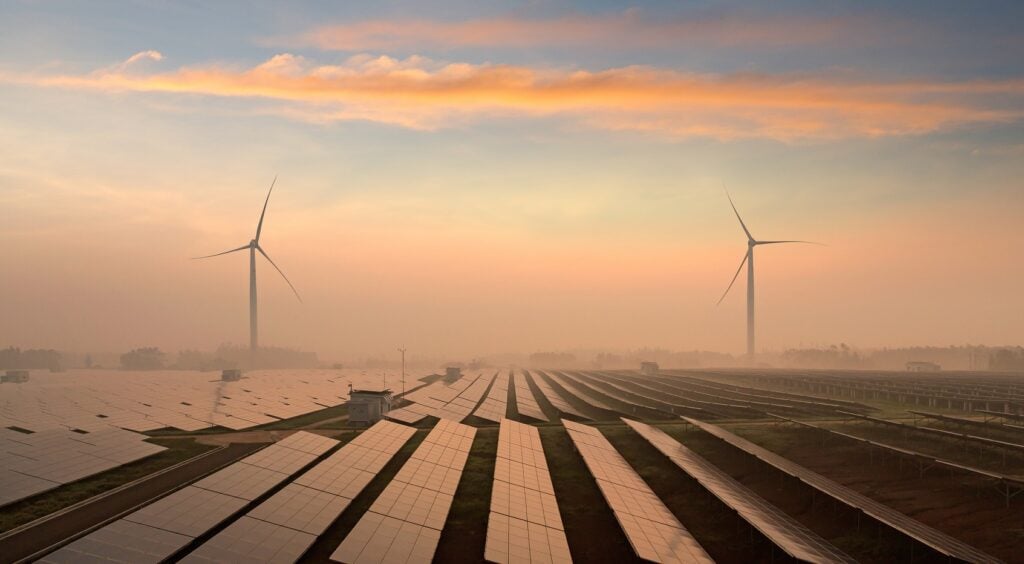Global renewables capacity must increase eight-fold and more than US$1.5 trillion (£1.2 trillion) must be invested into grids worldwide to help reverse the climate emergency, research body DNV GL has said.
In order to limit the impact of global temperature increases to below two degrees Celsius, solar capacity must increase ten-fold, wind capacity must grow by five times the current amount and grids must be overhauled to handle the added renewables capacity.
Those are the principal findings in DNV GL’s Energy Transition Outlook: Power Supply and Use report, published this week, which claims that the pace of the world’s transition to cleaner sources of power is happening more quickly than previously thought.
But, the report states, renewable deployment must ramp up even further if the power sector is to decarbonise to such a degree that global temperature increases are limited to well below two degrees Celsius.
If renewables were to continue to grow at their current trajectory, DNV GL anticipates that global temperatures would be 2.4 degrees Celsius warmer at the end of the current century.
Far-reaching policy decisions are therefore required to help stimulate an uptick in renewables deployment sufficient enough so that solar and wind could meet 50% of global electricity use each year by 2030.
This would equate to around 5TW of solar generation capacity and 3TW of wind capacity across the globe.
In addition, more than US$1.5 trillion would need to be invested in power grids by 2030 in order to facilitate the greater proliferation of renewables, while battery storage production would have to increase 50-fold worldwide to help those grids handle the extra renewable capacity.
Ditlev Engel, chief executive at DNV GL Energy, said that the firm’s research had shown that technology “has the power to close the emissions gap”, but stressed that “time is against us”.
“Those technology measures can only be successful if they are supported by extraordinary policy action. We are calling for government policies to expand and adapt power grids to accommodate the rise of renewables, economic stimulus for energy efficiency measures and regulatory reform to accelerate the electrification of transport,” Engel said.
“Governments, businesses and society as a whole need to change the prevailing mindset from ‘business-as-usual’ to ‘business-as-unusual’ to fast-track the energy transition.”





